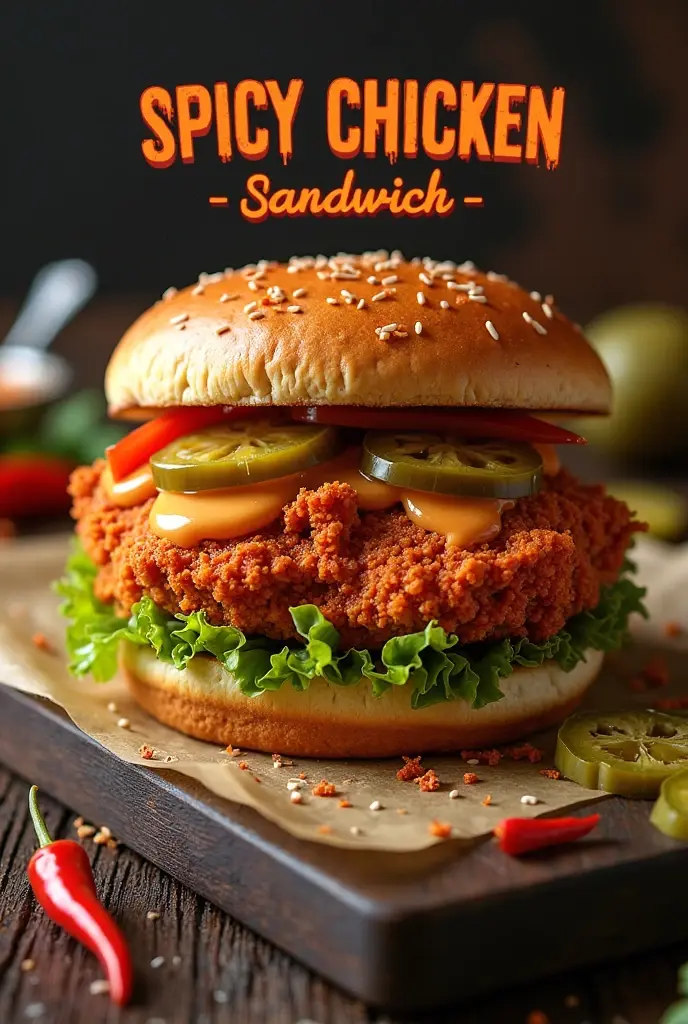If you love a little heat with your meal, this Simple Spicy Chicken Sandwich is the perfect choice. Juicy chicken with a crispy coating, spicy seasonings, and fresh toppings makes for a satisfying and flavorful sandwich that’s easy to make at home. Whether it’s for a quick lunch or a weekend treat, this recipe delivers big on taste with minimal effort.
Ingredients
For the Chicken:
- 2 boneless, skinless chicken breasts
- 1/2 cup buttermilk
- 1 teaspoon hot sauce (optional, for extra spice)
- 1 cup all-purpose flour
- 1 teaspoon paprika
- 1/2 teaspoon garlic powder
- 1/2 teaspoon cayenne pepper
- Salt and pepper, to taste
- Vegetable oil, for frying
For the Sandwich:
- 2 sandwich buns or rolls
- Lettuce leaves
- Tomato slices
- Pickles
- Mayonnaise or spicy mayo
- HEALTHY CERAMIC SKILLET – Made of natural ceramic, free of Intentionally added PFOA, PTFE, PFAS, lea…
- SUPER NONSTICK – The surface is smooth and super nonstick, eggs can just slide right off the pan wit…
- Fast, Even Heating & Universal Compatibility – Heavy-duty cast aluminum with induction base = no war…
Preparation Steps
Step 1: Marinate the Chicken
- In a bowl, combine buttermilk and hot sauce.
- Add chicken breasts and marinate for at least 30 minutes in the refrigerator (up to 2 hours for extra flavor).
Step 2: Prepare the Coating
- In a separate bowl, mix flour, paprika, garlic powder, cayenne pepper, salt, and pepper.
- Remove chicken from the marinade and dredge each piece in the seasoned flour until fully coated.
Step 3: Cook the Chicken
- Heat vegetable oil in a skillet over medium-high heat.
- Fry the chicken breasts for 4–5 minutes per side, or until golden brown and cooked through (internal temperature 165°F / 75°C). Drain on paper towels.
Step 4: Assemble the Sandwich
- Toast the buns lightly if desired.
- Spread mayonnaise or spicy mayo on the buns.
- Layer with lettuce, tomato slices, pickles, and the crispy spicy chicken.
- Close the sandwich and serve hot.
Tips for the Best Spicy Chicken Sandwich
- Adjust the cayenne pepper and hot sauce to control the heat level.
- For extra crispiness, double-dredge the chicken in flour.
- Add cheese or avocado slices for added flavor and creaminess.
This Simple Spicy Chicken Sandwich is a perfect combination of heat, crunch, and freshness—ideal for anyone craving a bold and easy homemade meal.
Have you given our recipe a try?
0.0
0.0 out of 5 stars (based on 0 reviews)
Excellent0%
Very good0%
Average0%
Poor0%
Terrible0%
